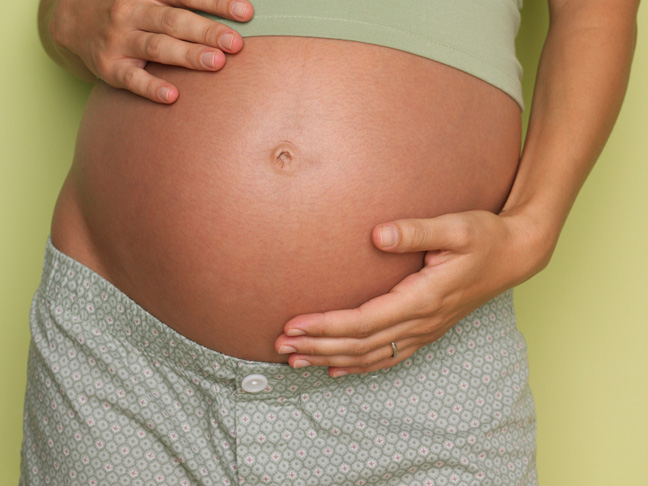Rachel Gueller wasn’t thinking about preeclampsia signs when she got pregnant at the age of 25. “I figured the chances of anything going wrong were slim, due to my age,” says the Chicago mom. At her 5-month check-up, however, her doctor noted one of the most common signs of preeclampsia: an increase in her blood pressure. Other common preeclampsia signs include swollen hands and feet, rapid weight gain, headaches, and protein in the urine.
In fact, approximately 200,000 to 300,000 women in the United States are affected by the potentially dangerous pregnancy condition each year, says Priya Agrawal, BMBCh, an ob-gyn and the former Director of Research and Development for the Women and Health Initiative at the Harvard School of Public Health. In fact, in the last two decades, the rate of preeclampsia has increased by 25 percent, making it one of the leading causes of pregnancy-related complications. If left untreated, the condition can be fatal for both mom and baby.
So, if you’re pregnant, it’s incredibly important to know all the preeclampsia signs and speak up right away if you think something is wrong. Read on for six preeclampsia symptoms that often get overlooked by doctors.
1. Vision problems
When you’re pregnant, dry eyes (especially if you wear contacts) are normal. Seeing spots or flashing lights, or experiencing a sudden change in vision (such as blurriness), are all possible preeclampsia signs, says Dr. Agrawal.
2. Severe headache
Headaches, of course, are common during pregnancy (sinus congestion is often the cause), but severe headaches or headaches that won’t go away may signal preeclampsia.
3. Abdominal pain
Pregnancy can be full of aches and pains, but “pain in the upper abdomen or under the ribs can be a sign of preeclampsia,” says Dr. Agrawal.
4. Nausea and dizziness
Chances are, you’ll feel dizzy and queasy at some point while expecting (hello, morning sickness!) — but if these potential preeclampsia symptoms occur during the second half of your pregnancy, you’ll want to call your doctor right away.
5. Swelling in the face or hands
Your feet will probably swell during your pregnancy, but swelling in your face, around your eyes, and in your hands could be a sign of preeclampsia.
6. Sudden weight gain
It’s normal to gain weight when you’re expecting. However, if you notice that you’re gaining more than 2 pounds a week, even though your eating habits have stayed the same, you may have preeclampsia, says Dr. Raez.
Since pregnancy causes preeclampsia, the only treatment is delivery, says Eduardo Raez, MD, an ob-gyn in private practice in San Antonio, Texas. As a result, many pregnant women who are diagnosed with preeclampsia are put on bed rest and may have additional prenatal visits and tests. Oftentimes, the baby is delivered via C-section. But, in general, mom and baby are just fine after the delivery. Gueller delivered her son Miles via a C-section at 35 weeks. Although he spent several weeks in the NICU, he’s now a happy, healthy, 5-year-old.
More Health Content for Pregnant Moms:
- What Are the Signs of Placenta Previa & How Is it Treated?
- Secrets to Finding the Best Prenatal Vitamin for You & Your Baby
- 6 Crucial Questions Every Pregnant Woman Should Ask Her Ob-Gyn
- Pregnancy Pains: What’s Normal And What’s Not
Photo: Getty




